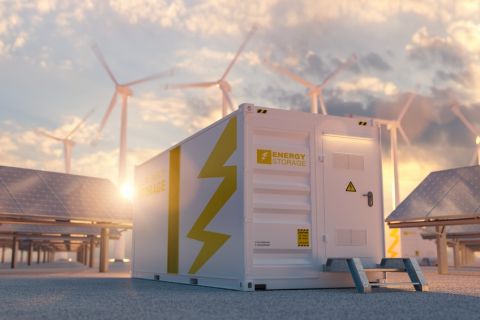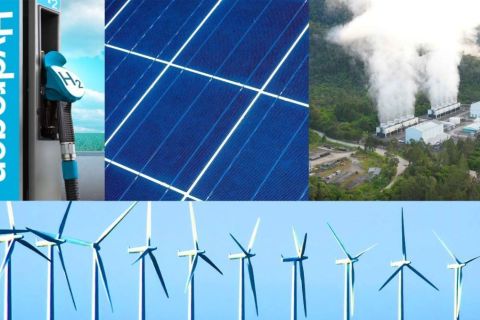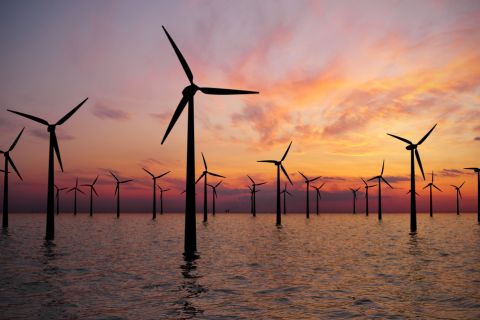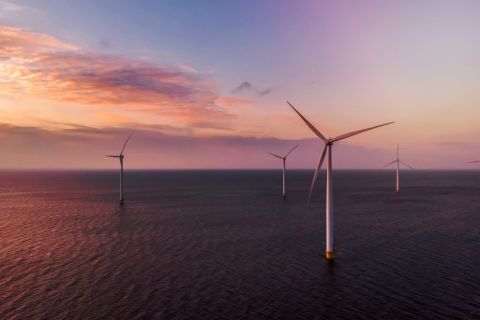
Range Resources set a goal last year to achieve net-zero greenhouse gas emissions by 2025, becoming one of the first U.S. shale producers to do so. (Source: Hart Energy)
Range Resources Corp. committed to a pilot project that would certify its natural gas production as “responsibly sourced.”
The project, with Denver-based startup Project Canary, is a part of a larger initiative by Range Resources to address key ESG matters. Last year, the company, a pioneer of the Marcellus Shale play, set a goal to achieve net-zero greenhouse gas (GHG) emissions by 2025, becoming one of the first U.S. shale producers to do so.
“Range has set ambitious emissions reduction goals including a target of net zero GHG emissions by 2025, demonstrating our focus on continuing to reduce our environmental and operating footprint,” Range CEO Jeff Ventura said in a company release on June 16.
In the release, Range said it had entered into a pilot program with Project Canary to utilize its Canary X continuous monitoring technology at two pad locations in southwestern Pennsylvania. The company will also participate in the TrustWell™ certification process that seeks to certify the company’s responsibly sourced natural gas (RSG).
A European multinational energy utility engaged in both domestic and international energy markets is also involved in this partnership and has agreed to purchase Range’s produced RSG, according to the company release.
“This partnership aligns with our long-standing commitment to class-leading environmental practices and enhances our commitment to supplying clean energy to help power our modern world,” Ventura added.
Range, which claims to have pioneered the Marcellus Shale in 2004, is an independent natural gas and NGL producer focused in the Appalachian Basin. Headquartered in Fort Worth, Texas, the company currently holds roughly half a million net acres in Appalachia primarily in southwest Pennsylvania.
Appalachia producers have achieved the lowest CO₂ intensities of any shale basin in the U.S., and Range is amongst the lowest in the country with a production GHG intensity below 0.25 MT CO₂e per MMcfe, according to the June 16 company release.
In the release, Range also announced it had also formed a new ESG and Safety committee on its board of directors. The committee, chaired by independent director Margaret Dorman, will provide oversight in expanding Range’s current ESG efforts and communicating measurable results related to these initiatives.
The RSG pilot program is aimed to validate Range’s natural gas production as responsibly sourced through monitoring and the TrustWell™ certification process, which provides verifiable, trusted ESG data and certainty for current and potential business partners.
“Our technologies and certification of operations are enabling companies to participate in and accelerate the energy transformation,” said Project Canary Co-founder and CEO Chris Romer in a statement.
Project Canary has announced several projects with companies across the upstream, midstream and utilities space to develop RSG using its continuous, on-site, real-time emissions monitoring technology.
“Stakeholders and the global market are demanding more sustainably developed resources,” Romer continued. “This pilot project reflects the company’s commitment to continued ESG leadership in the Marcellus.”
Other notable projects in Appalachia include partnerships with Chesapeake Energy Corp. for select wellpads in northeast Pennsylvania as well as EQT Corp.
Recommended Reading
RWE Boosts US Battery Storage with Three Projects
2024-02-14 - The three projects—two in Texas and one in Arizona—will lift RWE’s total U.S. battery storage capacity to about 512 megawatts.
Energy Transition in Motion (Week of April 12, 2024)
2024-04-12 - Here is a look at some of this week’s renewable energy news, including a renewable energy milestone for the U.S.
Equinor, Ørsted Bid for Better Contract in NY Offshore Wind Auction
2024-01-26 - New York State has received bids to supply power from three offshore wind projects in its expedited fourth solicitation that allowed developers to exit old contracts and re-offer projects at higher prices.
Equinor, Ørsted/Eversource Land New York Offshore Wind Awards
2024-02-29 - RWE Renewables and National Grid’s Community Offshore Wind 2 project was waitlisted and may be considered for award and contract negotiations later, NYSERDA says.
Dominion Energy Receives Final Approvals for 2.6-GW Offshore Wind Project
2024-01-30 - Dominion Energy’s Coastal Virginia Offshore Wind project will feature 176 turbines and three offshore substations on a nearly 113,000-acre lease area off Virginia Beach.




